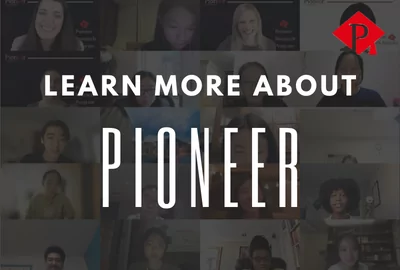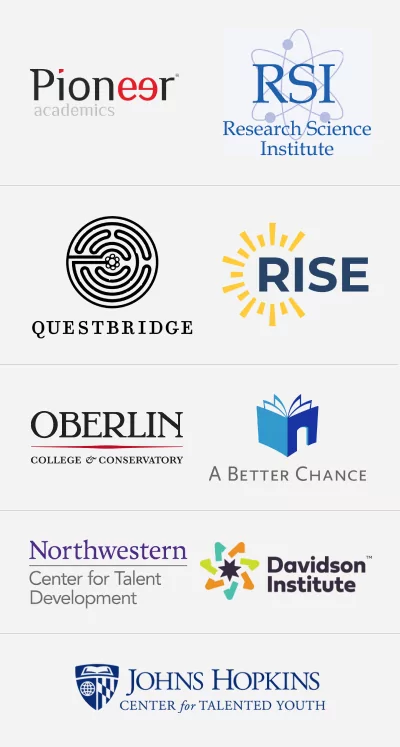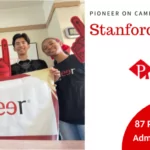It’s easy for students to get swept up in the “everyone is doing research, so I have to” mentality. Because the truth is more and more young researchers are gaining experience while in high school.
But you might find a vast majority of these students are following a fad, deciding to do research when it may not be the right fit for them.
As a parent, your ultimate goal should be to ensure that your student gets the needed guidance and encouragement to navigate if conducting research is the right path for them. How can you achieve this?
To put it simply: By finding out their true interests and passions. But sometimes, this is easier said than done! Young students may not even know themselves.
So, you must pay attention to details. We will look at how you can assist a student in exploring possible interests and passions, the main kinds of research opportunities, and publishing an in-depth research project. Let’s dive right in!
Is Writing a Research Paper the Best Decision?
It depends. Choosing a topic for research is the first and probably most challenging aspect of any research project. This can be a result of many things, including lack of understanding, inability to streamline broad topics, and having many options to choose from.
But the most likely reason? A student isn’t really interested in research. It’s like trying to fit a square peg into a round hole.
For some students, the possibility of discovering new findings, the chance to design experiments, and writing an analysis is a dream come true.
So deciding if writing a research paper is the best decision, teaching students how to go about exploring their interests is essential. Research is an opportunity to gain important skills, such as academic writing, but only if it aligns with what your child wants to do in the future.
To coach students on the process of research writing, you need to help them find their genuine interests and purpose.
What Does “Finding Purpose” Mean?
One’s life purpose is the principal reason they do what they do every day. It’s why they feel motivated to wake up every morning and take action to improve their lives.
Every individual needs to find their purpose because this can help give their life a sense of meaning and direction, influence good habits, and structure goals.
For many people, the only way to feel purposeful is by showing up at work every day and doing a good job. For some others, taking responsibility for the welfare of their family and friends is where they find it.
Purpose looks different for everyone. Plus, as your child encounters new experiences, priorities might start to change. You probably have experienced this yourself! So it’s also important to help your child adapt and say it’s OK to make changes as they navigate their life.
To help your child begin identifying their potential purpose in life might be, here are four ways to get started.
1. Focus on motivation, interest, and skills, not external achievement
First, high school students should be encouraged to explore their passions and interests. From computer science to data analysis to arts, there are many things in the world that a child could find interest in.
When motivating your high schooler to try out new experiences, you must be careful not to shame, judge or even bring in your personal biases. Instead, learn to give constructive criticism if you find anything discomforting.
Always focus on the process as that will naturally lead to more outstanding achievements. Also, when you focus on the outcome, the child might start to view the process as hard work; you sure don’t want this for your child.
2. Seek quality mentorship
One significant benefit of finding a mentor for your child is that it allows them to receive fresh perspectives about life, particularly from someone who isn’t you.
Good mentorship doesn’t necessarily mean your child should associate with students from ivy league colleges. Good mentors can be researchers, teachers, co-workers, counselors, and consultants.
3. Have your high school student participate in real-world activities
Pushing the students to explore life outside their comfort zones enables them to engage in new opportunities. Through these opportunities, they might develop hobbies that will help them find their true life purpose.
That is why it’s essential to allow students in any grade level to experience what the world looks and feels like outside the classroom walls. It doesn’t matter if it’s a road trip or being a part of a community development project. It’s essential to allow high school students to participate in real-life purpose-seeking activities actively.
4. Let your child learn from failure
This is probably the hardest thing to do as a parent because you want to protect your child, but sometimes you just have to let them fail.
Because one of the fastest ways to achieve long-term success is by learning from mistakes. Contrary to popular opinion, errors contribute to learning by improving critical thinking and information recall.
As a parent, you can help teach your child how to redefine their failures as learning opportunities. Just by doing that, they can learn an invaluable lesson about self-development that can dramatically change how they navigate their life.
How High School Students Can Gain Research Experience
If your teen loves to ask questions and explore new possibilities, and it seems to conduct research aligns with their interests, there are different ways for them to explore research opportunities.
Research doesn’t have to be limited to science, technology, engineering, and mathematics (STEM) fields. In every discipline, there’s a pile of questions to answer; the student only needs to search in the right places to come up with original research.
And to be clear, gaining experience conducting research should be the priority, not necessarily having published research.
It’s easy to assume that having a published paper can be seen as a significant accomplishment for young students, but the emphasis should be on the development of research skills, such as learning the scientific process and analyzing scientific findings.
To help a student find the best research opportunities, ensure that they:
Participate in research mentorship programs and internships
Being a part of a research mentorship program or internship specially built for high schoolers can be highly beneficial. Depending on the student’s interest and the knowledge they are looking to gain, there are many options to consider.
Getting enrolled in a good research mentorship program or internship enables students to access resources, such as peer reviewed research journals and other materials that will help them successfully complete a research project.
Additionally, they can experience the entire process of conducting research while having guidance, like with the Pioneer Academics program. Students are treated like other scientists, where they formulate a question, execute scientific inquiry and data collection, and organize and present their findings in a full-length paper.
Reach out to professors in your child’s field of interest
A second way to gain research experience is by urging the young ones to reach out to a member of the faculty personally.
The ideal process is – to get the professor’s contact through your family, friends, or school and establish communication. This does require a bit more work on the part of your teen to convince the faculty member how they can be beneficial to their work, but it’s not impossible.
Ask for opportunities at school
Your teen could see if there is an opportunity to conduct research as part of a special project or assignment.
There may be an option for your teen to switch out a class for an independent research project, or perhaps your teen could be the first one to introduce this concept!
Most teachers are experienced with conducting research, or at least understand the foundational principles of research, and could also guide your teen throughout the research process.
What to Know About Research Programs and Internships
If your teen is interested in more of a structured experience outside of their high school, here is what you need to know about the three main kinds of programs and internships.
Online Programs
Online research programs for high schoolers have mushroomed recently because of the COVID-19 pandemic. However, programs such as Pioneer Academics, is the only fully-accredited program in the world that has been helping teens gain research experience since 2012.
We connect students with a faculty mentor, provide resources such as a writing center, and those who successfully complete a research project earn college credit.
College/University Programs
Colleges and universities also host research programs, but these can vary dramatically depending on the institution. Some may take place just a few weeks in the summer, while some may require your teen to enroll and pay for classes.
But a big benefit of these programs is that high schoolers tend to find out know first-hand what being a college student feels like, and that can help them to prepare for the journey ahead.
Lab Internships
Interning at a research lab can widen one’s experience as your teen gets to interact directly with the principal investigator, the faculty member leading the research project and help them develop new connections that might be beneficial in the future.
This requires your teen to investigate to see if any labs have opportunities available for high schoolers.
There are lots of different opportunities for high schoolers, but not all are created equal.
1. Consider their schedule
Before looking up research opportunities for your high schooler, try to find out what their current academic calendar looks like. Factoring in the student’s schedules lets you find a research program that best suits them.
2. Budgeting
If your teen is looking at an online program or thinking of conducting an independent project, you must consider the costs.
Many online programs have tuition, which could be a financial roadblock for some families. At Pioneer Academics, we do offer need-based scholarships for students.
But even if a student decides to pursue an independent project, as a parent, you want to support them in their endeavor, so having them prepare a budget for any possible costs in advance can ensure that as a family, you can support them to the best of your ability.
3. Reputation of the research program
As we shared previously, various research programs are available, so it’s important to know how to differentiate the reputable ones that will truly validate your teens’ competitiveness.
Accreditation:
Many people tend to neglect the impact of accreditation when looking out for research opportunities. Verifying whether or not a reputable accrediting agency accredits a research program will save you time and resources.
Academic integrity:
It’s critical to find a research program that provides a rigorous and scientific research experience that not only provides academic oversight, but is also well-respected and known among accredited universities and colleges.
For example, Pioneer Academics has a system of academic oversight in partnership with Oberlin College.
Not only do Pioneer faculty review the research completed by students, but our colleagues at Oberlin College also evaluate all projects to ensure they consistently meet the three core elements of research.
Be wary of ‘guaranteed’ published research
As we shared previously, the goal of your teen exploring research is to gain skills and experience, not necessarily publishing a scientific paper.
Many students feel like getting published automatically equals success. That is not true at all! And programs that “guarantee” to publish your teen’s research findings are not going to use a reputable scientific journal, and there is usually a “pay to publish” catch.
Learn More: How High School Students Write Research Papers with Pioneer Academics
If you and your teen would like to learn more about Pioneer Academics, please join us for an upcoming online information session.
We cover everything you need to know about Pioneer Academics, the application and selection process, and can answer any questions you may have.


 Doing research is commonplace.
Doing research is commonplace.


